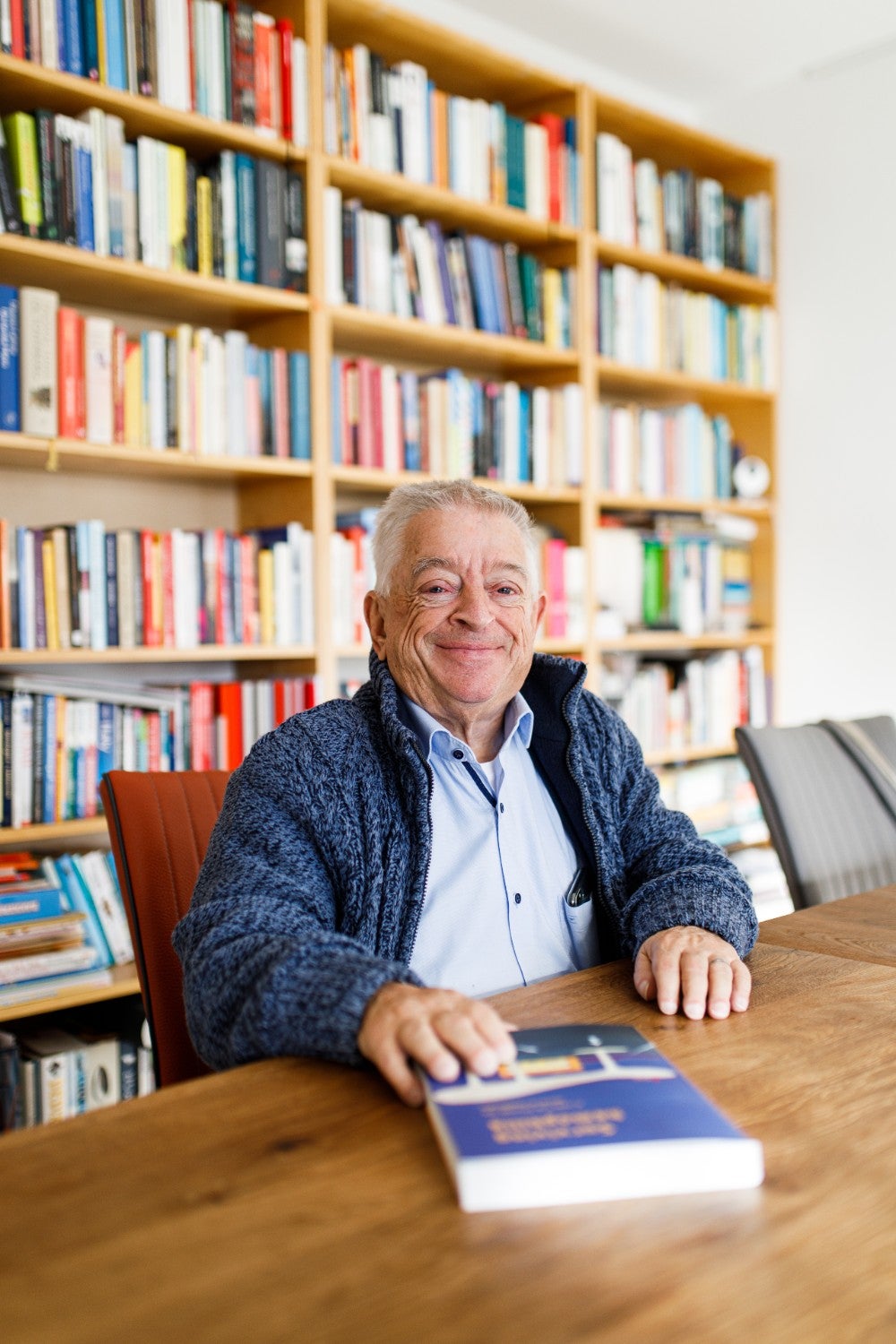Economy alumnus Cees Smit was born with the rare illness of haemophilia and contracted AIDS via a blood transfusion. Although he wasn’t expected to reach old age he’ll be 71 this month.
You studied economics at Vrije Universiteit Amsterdam. What were you planning to do?
„I started studying economics in the 1970s because I wanted to be a journalist. To me, it seemed better to choose a specialism and to write about that. A lot was also happening with haemophilia at that time. My parents had been told I wouldn’t reach old age and that reaching maybe twenty would be a good outcome. But many more treatments became available during this time. Suddenly it seemed as though I could reach old age."
„During the study programme, I wrote articles for the Haemophilia Association magazine in attempt to inform people about what the illness entails and to investigate the developments. I gradually became more involved in health and increasingly lost connection with the faculty. That’s why I didn’t complete the study programme."
You were on the Board of the patient association for years and also wrote about the subject, including a book, Overleven met Hemofilie (Surviving with Haemophilia). Was it an obvious choice for you to turn your illness into a job?
„It certainly wasn’t a conscious choice. I wanted to be as independent as possible, which is why I immersed myself in all aspects of the illness. That’s how I became involved in the patients’ association. It wasn’t long before I also started advocating for the interests of others with haemophilia. I’ve never felt ashamed of my illness and I never hide it and, in my case, that’s not that easy. I underwent an experimental treatment when I was young and developed a growth disorder so I’m rather short in stature."
„This diagnosis changed my perspective once more. My life expectancy was zilch again."
In the 1980s, you were closely involved with the scandals relating to infected blood transfusions that resulted in people with haemophilia suffering from HIV. How did that come about?
„I’d been investigating the trade in human blood for years. It’s a dangerous trade that can transfer viruses easily from one part of the world to another. I read an article in de Volkskrant newspaper in 1982 in which the relationship between AIDS and haemophilia was first discussed. It was already happening in America. I then suspected that I could also be infected but I was only informed later, in 1991, that I had the illness. This diagnosis changed my perspective once more. My life expectancy was zilch again."
Did you realise immediately what to expect when you became infected?
„From the start of the AIDS epidemic, I saw people dying in droves. When I received the diagnosis, I knew immediately that I’d probably face the same thing. It perhaps sounds strange but I didn’t get depressed about it. I continued with that same sense of optimism I’ve always had: I’ll just keep working and see where it ends. I can well imagine that someone hearing such news stops working and wants to spend the rest of their time doing nice things. But that attitude just doesn’t suit me. And luckily a treatment for HIV was developed in 1996 that altered my perspective again. I could just grow old normally. And yet it still sometimes feels surreal to think that I’ll be 71 in just over a month."

Were people who contracted HIV through contaminated blood transfusions an oddity in the AIDS community?
„Definitely. At that time, AIDS was an illness of sex, drugs and rock & roll. That’s not really an image that goes with this group. As a result, we didn’t fit in the system of existing services aimed at homosexual men, drug users and prostitutes. The various groups also clashed with each other. It was decided that people in the risk group should no longer be allowed to donate blood. We felt we were entitled to safe blood. This was met with major resistance from the homosexual community who felt they were being discriminated against as blood donors. I still think that giving blood isn’t an entitlement."
What is the quality of blood transfusions like now?
„We were already warning in the 1980s about the commercial trade in blood plasma. Instead of learning from this, the trade has just increased. In the Netherlands, we’ve managed to restrict the HIV problem among people with haemophilia rather well, in contrast to other European countries where often almost 100 per cent became infected. The difference is because we use volunteer donors in the Netherlands, whereas commercial trade is characterised by paid donors mainly from America. And this tends to involve a certain type of person: people who are more dependent on money and prepared to conceal things about their health."
„With Covid we’re also seeing that we’re even more dependent on care from abroad."
„The Netherlands is again much more dependent on foreign donors than in the past. We have enough blood, but not enough blood plasma. Now with Covid we’re also seeing that we’re even more dependent on care from abroad. That’s a bad thing. We need to have our affairs in order in the Netherlands."
You’ve experienced a lot in your life. Is that why you face whatever happens with optimism?
„Maybe. I’ve always made the most of every opportunity that came across my path, despite the potential limitations of my illness. And above all, I always wanted to stay in control of my life. Now I’m older, I’m again confronted with the fear that, at a certain point, I’ll no longer be able to take control of my own health and that I’ll suddenly be dependent on others. But I just prefer to see that as a consequence of reaching seventy."








